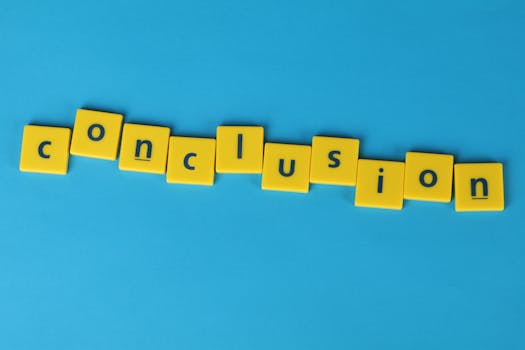What is learning outcomes assessment?

What is learning outcomes assessment?
When it comes to education, how do we measure success? That’s where learning outcomes assessment comes in. This process not only evaluates students’ understanding of the material but also helps educators refine their teaching strategies. In an ever-evolving educational landscape, understanding this concept is essential for anyone involved in teaching and learning.
Understanding Learning Outcomes Assessment
Learning outcomes assessment is a structured approach to evaluating the knowledge, skills, and abilities that students are expected to acquire by the end of a course or program. This assessment plays a critical role in ensuring that educational institutions meet their educational goals and effectively serve their students.
Definition of Learning Outcomes Assessment
At its core, learning outcomes assessment refers to the systematic evaluation of students’ performance based on predefined educational outcomes. These outcomes specify what students should know or be able to do after completing a particular course or program. According to the National Institute for Learning Outcomes Assessment, such assessments provide valuable insights into both student learning and institutional effectiveness.
Purpose of Learning Outcomes Assessment
The main objectives of learning outcomes assessment are multifaceted. Firstly, it aims to enhance student learning by identifying gaps in understanding or areas needing improvement. Secondly, it serves to inform instructional practices, allowing educators to adjust their teaching methods based on assessment results. Lastly, it provides accountability to stakeholders, demonstrating that institutions are committed to maintaining high educational standards.
The Process of Learning Outcomes Assessment
Implementing learning outcomes assessment involves several steps that ensure its effectiveness. From setting clear objectives to analyzing data, each stage is vital in creating a comprehensive assessment strategy.
Setting Measurable Learning Outcomes
The first step in the assessment process is to set clear and measurable learning outcomes. These outcomes should align closely with the overall educational goals of the program or course. For instance, rather than stating that students should “understand” a concept, it’s more effective to specify that they should be able to “apply” that concept in a practical scenario.
Data Collection Methods
Once learning outcomes are established, it’s crucial to choose appropriate methods for collecting data on student learning. This can include various strategies, such as:
- Surveys: Gathering student feedback on their understanding and experiences.
- Tests and Quizzes: Assessing knowledge retention through structured examinations.
- Performance Tasks: Evaluating students’ abilities to apply their knowledge in real-world situations.
These methods provide a well-rounded view of student performance and help identify trends or areas needing attention.
Analyzing Assessment Data
After collecting data, the next step is analysis. This involves interpreting the results to identify patterns and gauge student achievement. Effective data analysis not only pinpoints strengths and weaknesses within the student body but also highlights opportunities for curricular improvement. Through this process, educators can adapt their teaching practices to better meet students’ needs.
Benefits of Learning Outcomes Assessment
Implementing learning outcomes assessment can lead to several advantages for both students and educators.
Improving Student Learning
One of the most significant benefits of learning outcomes assessment is its potential to improve student learning. By identifying areas where students struggle, instructors can tailor their teaching methods to address specific challenges, ultimately enhancing understanding and retention.
Informing Instructional Strategies
Assessment data can guide educators in refining their teaching methodologies. For instance, if data shows that students consistently perform poorly in a particular area, educators can adjust their instructional approaches to focus on that topic more intensively.
Enhancing Program Accountability
Learning outcomes assessment fosters transparency and accountability. It provides evidence of student learning and program effectiveness, which is crucial for accreditation processes and institutional reviews. According to a study published in ResearchGate, this accountability is essential for building trust with stakeholders, including parents, students, and funding bodies.
Challenges in Learning Outcomes Assessment
Despite its benefits, learning outcomes assessment is not without challenges.
Resistance to Change
One significant obstacle is the resistance to change within institutions. Educators may be hesitant to adopt new assessment practices, especially if they feel their current methods are effective. Cultivating a culture that values continuous improvement can help overcome this resistance.
Resource Limitations
Another challenge is the potential lack of resources, whether financial or human. Effective assessment often requires additional training or dedicated staff, which may not always be feasible for educational institutions. Addressing these resource limitations is crucial for successful implementation.
Conclusion and Future Directions
Learning outcomes assessment is a vital aspect of education that enhances both student learning and instructional effectiveness. By setting measurable outcomes, collecting and analyzing data, educators can significantly improve their teaching strategies. As the educational landscape continues to evolve, future trends may include increased integration of technology in assessments and a greater emphasis on formative assessments that provide ongoing feedback to students.
In conclusion, understanding and implementing effective learning outcomes assessment is key to fostering an environment where students can thrive. As we continue to explore this field, it’s essential to remain open to new practices and methodologies that can enhance educational outcomes.